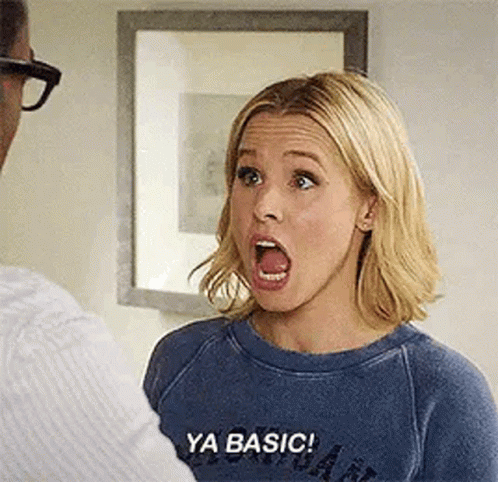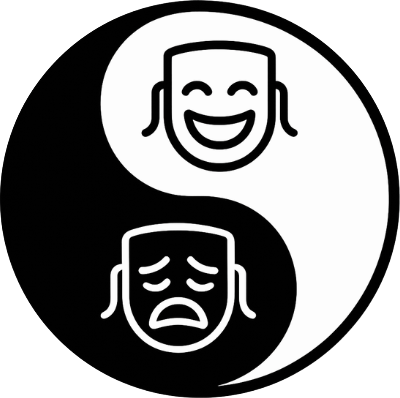The Self-Determined Actor (Part 1)
Confession: we've had this article in draft mode for 18 months 🤦 You know those important but overwhelming tasks / projects you procrastinate completing under the guise of "perfecting"? This is one of those.
Fortunately, we remembered that "perfect" doesn't exist, and so published instead. Sharing something good enough > not sharing something "perfect".
So, welcome to a long-overdue crash course in basic psychological needs theory. This will be kept 101 level – we'll do a deeper dive in a future article – nevertheless, anecdotal evidence from our coaching practices tells us that even an intro-level understanding of this theory can have an outsized effect on the empowerment felt by actors. Knowledge is, after all, potential power.[1]
Backed by science; built for the stage and screen.
👊 Actors:
Get evidence-informed insights and strategies to support your performance and well-being. Join the Dojo e-newsletter tribe and make thriving your reality.
🧭 Drama schools & Production companies:
Bring pioneering, research-backed coaching into your classroom or rehearsal room. Let’s talk about supporting your actors to perform at their peak – and stay well in the process.
The theory in theory
Basic psychological needs theory is one of six mini-theories within the macro self-determination theory.[2] If we were to boil this macro theory down to its TL;DR form, we'd summarise that it provides a comprehensive model for understanding human motivation. In truth, self-determination theory contains a lot – the literature can be pretty dense at times – but in this discussion, we'll narrow our focus to just the mini-theory of basic psychological needs.
Research across work, education, and life contexts reveals that our sense of motivation and well-being can be compromised if and when our basic psychological needs aren't met.[3] In fact, one study describes basic psychological needs as the "essential nutrients for optimal human functioning".[4]
What are these basic psychological needs, you ask? Excellent question. There are three: autonomy, competence, and relatedness. And notably, research seems to suggest these three needs hold across cultures.[5]
When our needs for autonomy, competence, and relatedness are met, we feel "full willingness and volition", "effective and capable", and experience "intimacy and genuine connection with others".[6] In contrast, when our needs for autonomy, competence, and relatedness aren't met, we experience feeling "controlled through externally enforced or self-imposed pressures", "failure and doubts about one's efficacy", and "relational exclusion and loneliness".[7]
The reason we care about bringing this into the conversation is, unfortunately, neither the entertainment industry nor acting training is structured to adequately address these needs.[8] Although that's obviously not awesome, and we'll continue to do our bit to massage both these domains toward a more psychologically supportive posture, it can be empowering to realise that this isn't an us problem but a systemic one. We aren't failing as actors; the system is failing us.
The theory in practice
Long-time Dojo friends will know the sentence that's coming. Feel free to say it with us (or eye roll, whatever your vibe): we must empower ourselves until our industry and training come to empower us.
Before we unleash you onto our list of tactical-practical suggestions, we should highlight that very little research has been conducted into enhancing autonomy, competence, and relatedness with actor populations. As a result, the suggestions below have been borrowed from other fields and actor-fied within the Dojo, but without empirical testing (yet). Transparency and accuracy matter, and we want to walk that talk. That said, this is our current collection of suggestions with anecdotal efficacy. Let us know if you have / discover others. We'd love to build a basic psychological needs-enhancing Pokédex with y'all 👊
To enhance autonomy:
- Craft a personal definition of "success".
- Set your own goals.
- Develop an individualised Training Menu.
To enhance competence:
- Get your "results" elsewhere.
- Specify process and performance goals.
- Double down on well-being metrics (e.g., sleep, nutrition, and movement).
To enhance relatedness:
- Build and prioritise time with your tribe.
- Remember you're a spiritual being having an actor's experience.
- Find your querencia.

As mentioned, we'll return for a deeper dive into self-determination theory in a future article, but we wanted to at least get the ball rolling after 18 months of procrastination 😅 In the meantime, if basic psychological needs are considered the "essential nutrients for optimal human functioning", this may be one instance we need to embrace being #basic.
Love what you’re reading? Help us keep it flowing. Donations support the research, writing, and free sharing of evidence-informed tools for actor performance and well-being. Every dollar fuels our mission to make thriving a reality for actors everywhere 🔥
Citations
[2] https://doi.org/10.1207/S15327965PLI1104_01
[3] https://doi.org/10.1037/10363-008
[4] [5] [6] [7] https://doi.org/10.1007/s11031-014-9450-1
[8] https://doi.org/10.1111/ap.12221
Cite us!
IG: @theactorsdojo
APA 7: Norrish, T. (2025, January 10). The self-determined actor (Part 1). The Actor’s Dojo. https://www.dojoactors.com/self-determined-1/
